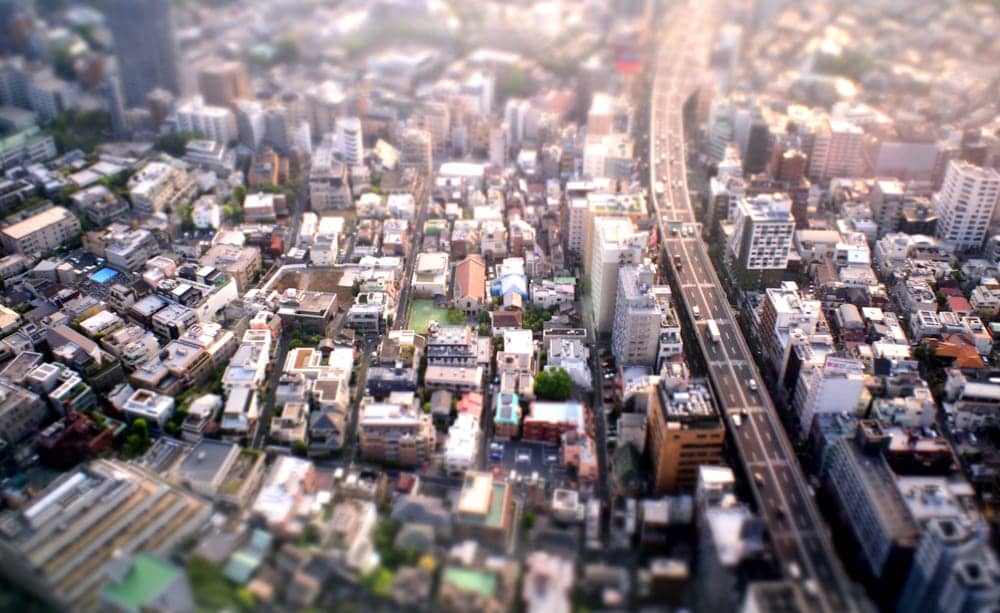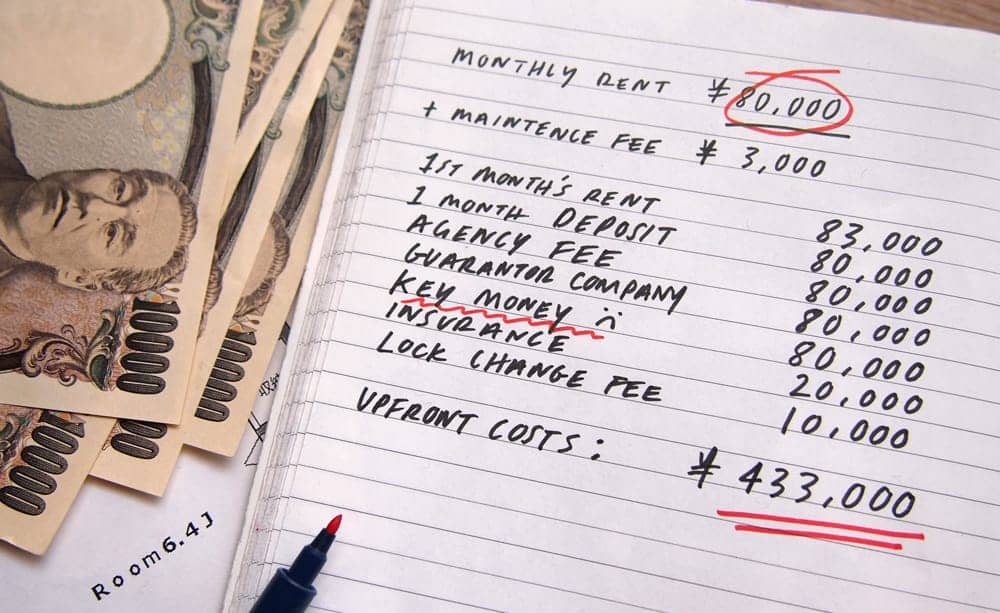Whether looking to upgrade your current abode or apartment hunting in Tokyo for the first time, renting in Japan can be an overwhelming and complicated experience. To offer some guidance and make sure you don’t overlook any steps along the way, here are our top tips for finding your dream Tokyo apartment.
1. Know Your Options: Apartment or Share House
Before you start looking, take a moment to consider if setting up your own apartment is really right for you. If you’re not sure how long you’re going to be staying in Japan, then signing a two-year lease might not be the wisest decision. Similarly, if you’re a student, have an irregular income or worry you might fall short of some of the potential rental requirements, then considering alternative options might solve a lot of your problems. A share house or “guest house” offers a long-term stay without the commitment, as well as bypassing many of the initial set up costs. Two good places to start looking include tokyosharehouse.com/eng and www.sakura-house.com/en.
The best guest house owners curate a harmonious mix of residents, and you can find some functioning exclusively for women or professionals, depending on your needs. For antisocial types or people who just don’t like waiting for the shower, many luxury dormitory style apartments include en suite bathrooms while still offering some communal areas. If you still have your heart set on being an independent living city resident and writing your name on the mailbox, read on…
2. Factor in the Hidden Costs: What is Key Money?
The cost of living in Tokyo can be far more affordable than global news articles would have you believe (unless you insist on renting that glass-walled Azabu skyscraper…), but it’s also no exaggeration that the cost of moving house in Japan can be astonishingly high. The long list of set up costs will vary depending on the real estate agency, the landlord, and prevailing local standards, but here’s what you’ll most likely be asked to provide:
- Deposit – A security deposit of one to three months’ rent, which should be refunded when you move out, minus any charges for damage, cleaning fees and so on.
- First month’s rent – One month’s rent upfront, depending on your moving date.
- Agency fee – Your agent’s commission or brokerage fee varies from zero (if you’re very lucky) to 1.5 months’ rent.
- Key money – Reikin is a “gift” of one or two months’ rent that you pay to the landlord (and never receive back!). The tradition originated after the Kanto earthquake in 1923, and its modern irrelevance is one of the biggest grumbles when it comes to renting in Japan.
- Guarantor company fee – A guarantor is a person (often an employer or a family member in the case of Japanese tenants) who vouches for your reliability and acts as insurance for your contract. If you don’t have a guarantor, and sometimes even if you do, you might need to use a guarantor company. They charge a once-off payment of around one month’s rent, plus an annual renewal fee of about ¥10,000.
- Lock changing fee – Many landlords insist on changing the locks for each new tenant, and you have to cough up for the bill (around ¥12,000).
- Insurance – Fire and emergency insurance is also mandatory and costs around ¥15,000 to ¥20,000.
- Maintenance fee – This is a monthly surplus fee added to the rent on some apartments to cover the maintenance and upkeep of communal spaces like your lobby and elevators. Around ¥3,000 to ¥8,000 a month.
- Cleaning fee – This will be deducted from your deposit after you move out to cover cleaning and property damage – this usually happens regardless of just how well you think you’ve cleaned it yourself.
- Renewal fee – The standard apartment lease is two years. If you want to stay longer, most landlords or rental agencies expect you to pay a renewal fee of one month’s rent every two years.
Don’t forget to factor in your utilities: gas, water, electricity, Internet. And remember that most apartments come unfurnished, so if this is your first big move you also need to budget for furniture including your essential white goods: washing machine, fridge and maybe even your gas stove (Craiglist Tokyo is good for bargains).
3. Establish Your Priorities: Location, Size, Pets
Just like any other big city, locations with convenient transport links and good local amenities come at higher costs. The small size of Japanese living spaces is notorious but shoebox living isn’t your only option. You’ll save money and get more floor space if you can handle a 10- or 15-minute walk to the station every day, especially if it’s a station where express trains don’t stop.
Are you yearning for a balcony? Do you need a lot of natural light? Would you really be okay living on the 14th floor? Tatami flooring or wooden flooring? Is it going to drive you insane if your toilet and shower room are combined in a single unit bathroom resulting in a constantly damp floor? These are just a few of the important questions you should be asking yourself. Also, if you’re the owner of pets or musical instruments be aware that these are widely considered special requirements for Japan apartments.
4. Understand Japan’s Property Terms: Deciphering a 6.5 “Jo” 1LDK
Japanese apartments are measured overall in square feet but the individual room sizes are still given in jo (tatami mat size). A standard bedroom is six-jo, or six-mat, which refers to the space taken up by six tatami mats (one mat is about 1.8 meters x 0.9 meters).
As for apartment layout, LDK stands for “living, dining, kitchen,” and refers to an open-plan area combining these three areas. 1LDK indicates that there is one separate bedroom and a separate bathroom. 2LDK has two bedrooms, and so on.
1DK is one bedroom plus a smaller separate dining room and kitchen, with a 1K only having a compact separate kitchen. 1R or studio means everything except the bathroom is in one room, and can be a very affordable option if you don’t mind sleeping with the gentle hum of the refrigerator by your side.
It’s true that Japanese apartments are relatively small compared to the global average, but you might be surprised what you can fit into a 1DK – take some inspiration from our article “Peek Inside Japanese Apartments.”
5. Prepare for the Paperwork: Tokyo Real Estate’s Most Wanted Documents
Ever asked a fellow foreigner the exact requirements for a Japan work visa application and received a tangled mess of contradictory, confusing and unclear information? Well, finding out what’s required for renting an apartment here results in a similar experience – concrete facts are minimal in comparison to the abundance of speculation and hearsay. The only way to know for sure is to ask your agent, so we can’t guarantee exactly what you’ll need, but here are a few things you should expect to be asked for:
- Proof of your income and employment. The standard expectation in Japan is that your rent will amount to no more than a third of your income, so if you want to rent an ¥100,000 a month apartment, then your monthly salary should be ¥300,000 minimum.
- A valid visa, generally with at least one year left.
- A Japanese guarantor who will also need to provide their personal details including proof of their employment, and proof of income sufficient to cover your rent should you default. Foreigners generally aren’t accepted as guarantors.
- Proof of registration at your previous address, which might require a certificate from your previous ward office.
If it turns out you don’t have all the paperwork your agent requires, don’t give up; simply try another agency.
6. Find a Good Agent: Communication is Key
Finding a real estate agent with whom you can easily communicate is essential. Tell them exactly what you want and they will work hard to find it – that agency fee you’re paying isn’t for nothing! If your Japanese isn’t up to par, then you will need a very patient Japanese friend on hand to help translate the entire process. However, there are plenty of agents who offer English support these days.
Note that even if you can speak fluent Japanese, some agents and landlords simply aren’t willing to rent to foreigners. This is a hot topic of discrimination but unless you have a lawyer on hand or enjoy making life difficult for yourself, it’s advisable to take a deep breath and keep looking elsewhere. There are plenty of excellent agencies and services for foreigners renting in Tokyo. Suumo, one of the top real estate providers in Japan even has a special section on their site targeting foreigners, including a helpful directory of agents offering services in English. You can also try Gaijin Apartment Helper, which has listings of foreigner-friendly apartments in the Tokyo and Osaka areas.
Trust your gut feeling when you meet agents for the first time; if they seem reluctant to show you properties then it’s likely the whole process will be a struggle. A good agent is confident, efficient and will help you every step of the way.
Do you have any other tips for finding great apartments in Tokyo? Let us know in the comments!










